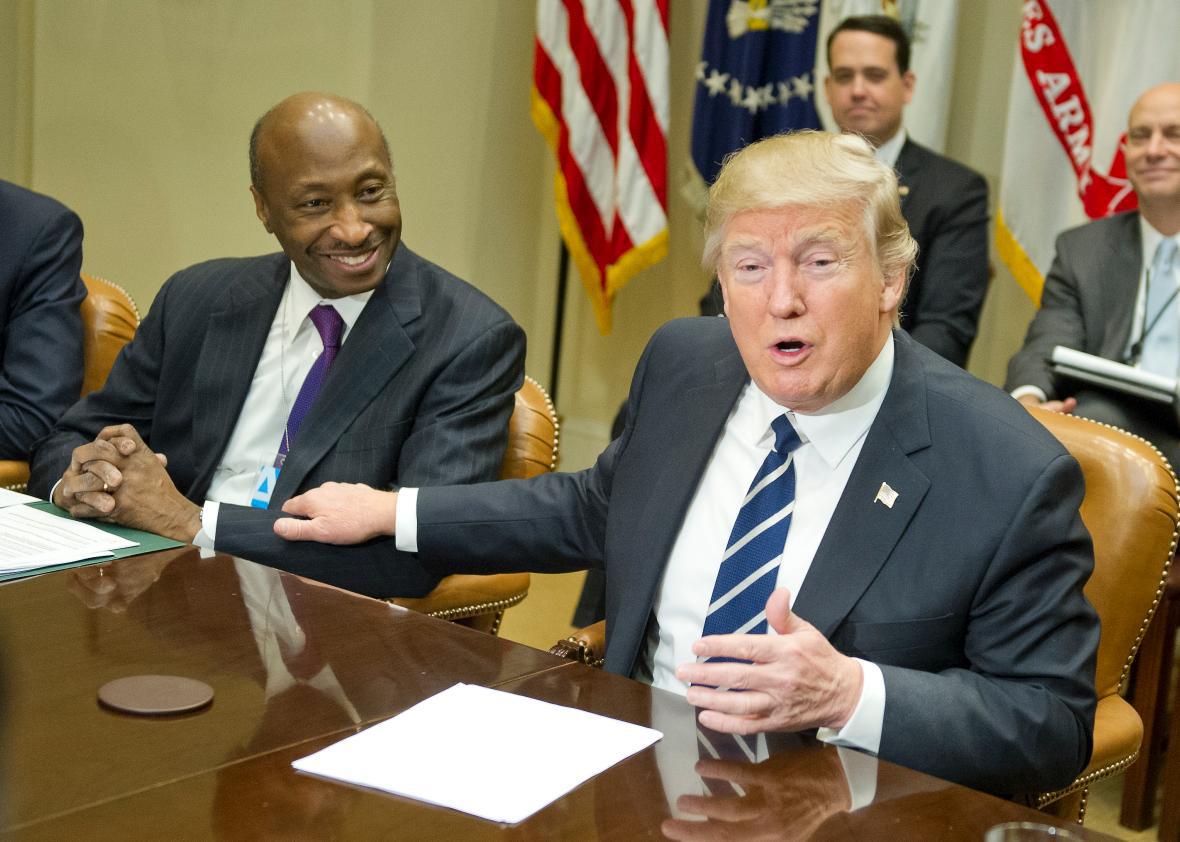It has been a bit more than a month since the inauguration of Donald Trump as the 45th president of the United States. With every passing day, the new administration seems to kick up another dust storm of controversy or troublesome policy. Waiting for it all to settle is likely to be a fool’s errand.
Nevertheless, for LGBTQ patients and those who deliver medical care to them, it’s worth pausing and considering what changes may be coming, and where the new agenda in Washington may have an impact on the health of gender and sexual minorities.
Following rumored rollbacks of federal protections for LGBTQ people, it was reported that those protections were preserved through the intervention of Ivanka Trump and Jared Kushner, the president’s eldest daughter and son-in-law. While I know LGBTQ people are meant to be grateful those two were looking out for us, it’s distressing to consider that our rights are secure only insofar as they enjoy the personal protection of members of the president’s immediate family. Given the pressure from the evangelical wing of his base for Trump to justify their support, and the views of the man now leading the Department of Health and Human Services, it would have been naïve to blithely assume no adverse outcomes to our wellbeing would be forthcoming.
Indeed, whether or not Ivanka and Jared tried to do anything about it, the Trump White House has already reversed Obama-era protections for trans students. The Obama administration had advised schools that under Title IX, trans students should be allowed to use the bathrooms that align with their gender identity. But the Trump administration withdrew this guidance, allowing conservative states to discriminate against trans students without legal repercussions.
Anticipating these kinds of policy changes, the National LGBTQ Task Force Action Fund and the National Coalition for LGBT Health published a guide to various different health care issues of particular relevance to sexual and gender minorities prior to last year’s election. Given the election’s outcome, the 10 issues raised in the guide bear all the more attention now.
Some of the topics raised are relatively straightforward regarding their impact on the LGBTQ community. Access to comprehensive methods to prevent and treat HIV infection is of paramount importance to men who have sex with men, who still comprise a substantial majority of new infections. One change congressional Republicans will likely push—and one favored by new Health and Human Services Secretary Tom Price—is a switch to block grants for Medicaid. That give states much more leeway over Medicaid spending, allowing them to slash funding for services that a provide a lifeline to LGBTQ people. With the resulting drop in funding, HIV services would be particularly vulnerable to cuts.
Similarly, few targets of GOP antipathy loom as large in their sights as Planned Parenthood. Republicans are already taking steps to prevent patients with Medicaid from getting their care in Planned Parenthood clinics. The organization performs more than 650,000 HIV tests every year. In addition, many of its clinics offer PrEP, a drug regimen that can substantially lower the risk of HIV transmission for those who take it. And it provides services that all people, LGBTQ or not, require such as Pap smears. Efforts to block access to these services for those who may lack access to health care alternatives would put many LGBTQ men at greater risk.
If the much-ballyhooed repeal of the Affordable Care Act comes to pass, among those left particularly vulnerable are trans patients. The ACA prohibits discrimination against trans people by health care providers and insurance companies, protection that would be lost if the law is repealed. (It has already been blocked by a notoriously anti-LGBTQ federal judge as a violation of doctors’ “religious freedom.”) Even with those protections in place, many trans people still experience discrimination in accessing health care. Over one-quarter of respondents to a nationwide 2011 survey of trans people reported harassment in medical settings. Loss of access to Planned Parenthood, which offers hormone therapy to trans patients, may leave many trans patients without a safe, affirming health care provider.
But other issues raised by the guide may not seem as intuitively linked to LGBTQ people at first pass. Youth homelessness, for example, might not appear to be a gender or sexual minority issue—until one learns that about 40 percent of homeless youths each year identify as LGBTQ. Violence prevention is also, perhaps surprisingly, a queer issue: 2016 set a record for number of trans people murdered, and intimate partner violence is just as common in same-sex relationships as among heterosexual couples. With the anti-gay Jeff Sessions as attorney general and Ben Carson as secretary of Housing and Urban Development, advocacy on behalf of the most vulnerable in the LGBTQ community will be even more critical. LGBTQ advocates will need to put pressure on law enforcement to fully investigate violence targeting queer people and to ensure access to safe shelters.
Our communities have needs that warrant particular attention—and require our effort to protect. Whatever defenders we may have within the president’s inner circle at any given time, plenty of people close to the president have an unambiguous agenda of opposing our rights or trying to erode them under the guise of “religious liberty.” Barely a month has passed, and there are many fights to come to keep ourselves safe, respected, and healthy.
